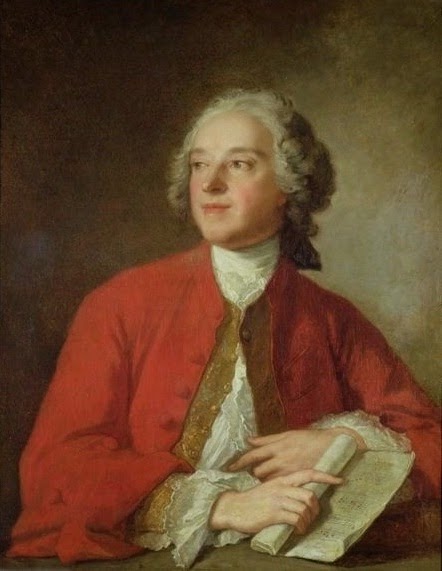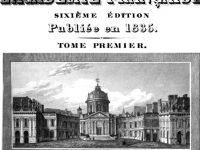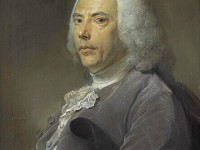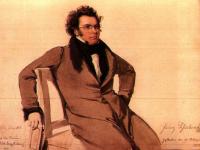
Pierre-Augustin Caron de Beaumarchais(1732-1799)
On May 18, 1799, French playwright Pierre-Augustin Caron de Beaumarchais passed away. Bonmarchais, who also was a watchmaker, inventor, musician, diplomat, fugitive, spy, publisher, horticulturalist, arms dealer, satirist, financier, and revolutionary (both French and American), is best known for his theatrical works, most notably the three Figaro plays.
“Drinking when not thirsty and making love all the time, madam, is all that distinguishes us from other animals.”
— Pierre Beaumarchais, The Marriage of Figaro (1778)
Background of Beaumarchais
Born in the Rue Saint-Denis, Paris on 24 January 1732 as a provincial watchmaker’s son, Beaumarchais rose in French society and became influential in the court of Louis XV as an inventor and music teacher. At the time, pocket watches were commonly unreliable for timekeeping and were worn more as fashion accessories. In response to this, young Beaumarchais spent nearly a year researching improvements. In July 1753, at the age of twenty one, he invented an escapement for watches that allowed them to be made substantially more accurate and compact. One of his greatest feats was a watch mounted on a ring, made for Madame de Pompadour, a mistress of Louis XV. The invention was later recognised by the Academy of Sciences, but only after a dispute with Lepaute, the royal watchmaker, who attempted to pass off the invention as his own. The affair first brought Beaumarchais to national attention and introduced him to the royal court at Versailles.
In 1756, at age 24, Beaumarchais married a rich widow who died a year later. He found himself with a fortune — the first of several he made and then lost. Musically talented, he became harp teacher to the daughters of Louis XV in 1759. In 1764 he made a journey to Spain to protect or vindicate his sister, who had been abandoned by her betrothed, Clavigo. His account of this mission in his Mémoires suggested the drama Clavigo to Goethe. He brought from Madrid a knowledge of things Spanish that was later of much use to him. He now turned to the drama, wrote Eugénie (1767), a fairly successful domestic drama, and Les deux amis, a decided failure in the pathetic vein. Meantime he had become engaged in financial speculations that led to lawsuits, and these to a series of Mémoires, appeals to the public that are among the most vigorous, audacious, clever, and witty polemics in literature. Their attack on judicial injustice gave them a universal interest. They were eagerly read and deepened the discontent with the existing state of society that was to culminate in the French Revolution.
Politics
Beaumarchais thus became a political personality. In 1776, after the remnants of George Washington’s American army had crossed the Delaware into Pennsylvania in 1776, and British troops prepared to seize the rebel capital of Philadelphia, Beaumarchais wrote to French foreign minister Vergennes: “The Americans will triumph, but they must be assisted in their struggle. We must . . . send secret assistance in a prudent manner to the Americans.” France joined the American War of Independence against Britain officially in 1778, but Beaumarchais had already supplied arms to the American colonies. Beaumarchais was confidentially employed by Louis XV and later by Louis XVI; but before this he had snatched a sensational dramatic triumph out of failure by rearranging a comic opera into a five-act comedy-his Barbier de Séville (1775), Spanish in scene, but essentially French at the heart; the most famous comedy of the century, save only its sequel from the same hand.
“That which is not worth speaking they sing.”
— Pierre Beaumarchais, Le Barbier de Séville (1773)
The Marriage of Figaro
The Barber of Seville and The Marriage of Figaro showed Beaumarchais sympathy for the lot of the under-privileged people and the lower classes. In both plays the hero is a valet, Figaro, who is more clever than his noble employers, especially his master Almavira. In these class-conscious plays Beaumarchais mocked aristocracy although he was well-aware of his dependance on its favour. This also created a constant tension in his dramas – much is said and much is written between the lines. Mozart’s opera version of the play was based on the libretto written by Lorenzo da Ponte. It gained a huge popularity. “Here they talk about nothing but Figaro. Nothing is played, sung or whistled but Figaro,” wrote Mozart to a friend from Prague. By his writings, Beaumarchais contributed greatly, though quite unconsciously, to hurry on the events that led to the French Revolution. When the French Revolution broke out, Beaumarchais was no longer the idol he had been a few years before. He was financially successful, mainly from supplying drinking water to Paris, and had acquired ranks in the French nobility.
Émigré
Nevertheless, Beaumarchais pledged his services to the new republic. He attempted to purchase 60,000 rifles for the French Revolutionary army from Holland, but was unable to complete the deal. While he was out of the country, Beaumarchais was declared an émigré (a loyalist of the old regime) by his enemies. He spent two and a half years in exile, mostly in Germany, before his name was removed from the list of proscribed émigrés. He returned to Paris in 1796, where he lived out the remainder of his life in relative peace.
James Conlon on Pierre de Beaumarchais, [5]
References and Further Reading:
- [1] Pierre de Beaumarchais at Britannica Online
- [2] Mozart’s Famous Masonic Opera – The Magic Flute, SciHi Blog
- [3] Mozart Got Married, SciHi Blog
- [4] Pierre-Augustin Caron de Beaumarchais at Wikidata
- [5] James Conlon on Pierre de Beaumarchais, Luxury and Liberation: Art and Revolution in 18th-Century France, Getty Museum @ youtube
- [6] Fenton, Robert. “Honor and Rebellion in the Theater: Beaumarchais, Mozart and Figaro”. Academia.edu.
- [7] Thomas, Hugh (2006). Beaumarchais in Seville: An Intermezzo. Yale University Press.
- [8] Works by or about Pierre Beaumarchais at Internet Archive
- [9] Timeline of 18th century French writers via DBpedia and Wikidata





